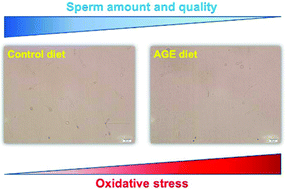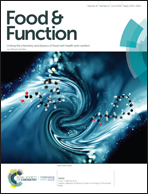Potential effect of advanced glycation end products (AGEs) on spermatogenesis and sperm quality in rodents
Abstract
The aim of the present study was to assess whether dietary advanced glycation end products (AGEs) induce testicular dysfunction. Using a BALB/c mouse model, AGE intake and serum levels were found to increase in AGE diet-treated mice relative to the controls. Histopathological damage was detected in the testes and epididymides of the AGE diet-induced mice. The total number of epididymal sperm decreased, and increased abnormal sperm rate was found in the mice. Moreover, the mice testes showed an increased level of the receptor for AGEs (RAGE) and malondialdehyde (MDA). Using a Sprague-Dawley rat model, AGE diet-induced rats showed 3- to 4-fold higher AGE intake than the controls. In these rats, higher serum and sperm MDA levels, decreased epididymal sperm numbers, and increased abnormal sperm rates were also observed. Silymarin, a natural AGE inhibitor, was found to restore these AGE-induced phenomena. Concluding from the above findings, dietary AGEs may promote testicular dysfunction.



 Please wait while we load your content...
Please wait while we load your content...